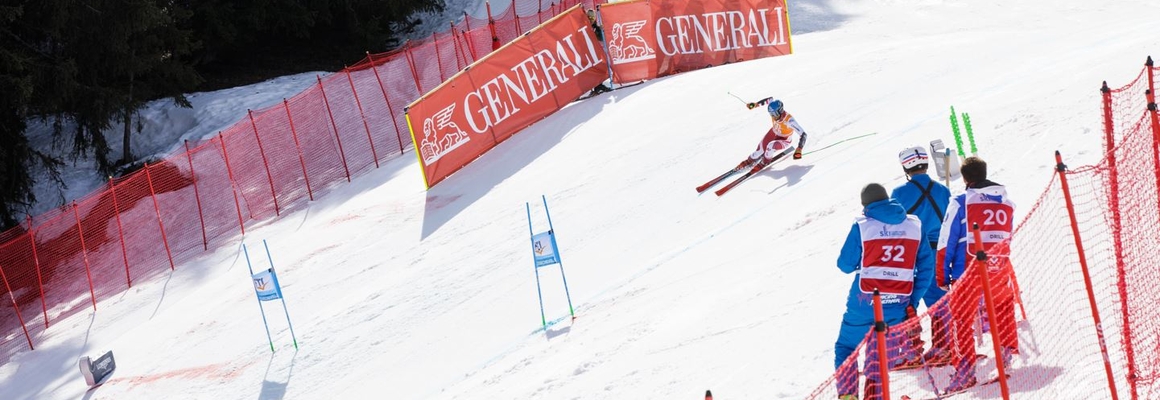
December Highlights in Méribel
Experience the magic of the holidays in Méribel !
December 05, 2022

Reducing our carbon footprint and protecting biodiversity are requirements that have gradually become central to decision-making in mountain resorts.
In the age of energy conservation, everyone is trying to do their bit. To respond to these concerns, the Courchevel-Méribel Organising Committee drew up an ambitious CSR (Corporate Social Responsibility) policy.
In Méribel, we are happy to see the values of sport being a driver for larger-scale change. Hosting such an event is a chance to prove that positive change can be born from major sporting events.
Would you like to know more about the actions instigated by the World Championships CRS policy? And would you like to know how these commitments are translated into concrete actions? Then read on!
It would be impossible to give every detail, as the CSR commitments of this event are embedded in all aspects of the event, both on an ecological and social level. We have therefore chosen to give an overview by showing you some of the concrete commitments implemented for this long-awaited competition. If you wish to delve deeper into the CSR commitments of the World Championships, you can read the full report online.
Did you know that transport accounts for most of the CO2 emissions of a mountain resort? According to the Agence de la Transition Écologique, 57% of the greenhouse gas emissions generated by winter sports tourism come from car and air travel to the mountains.
Skiing, on the other hand, accounts for only 2% of the CO2 emissions of a ski resort. These figures help explain the importance of a greener transport policy, especially when hosting an international sporting event.
The Championships Organising Committee commits to reduce the transport carbon footprint and takes into account the travelling done by the organisers and participants (competitors, spectators, VIPs, volunteers, journalists and partners).
If you wish to attend the Alpine World Ski Championships, you can use the public transport system set up for the event, as Emilie Meynet, the Organising Committee CSR Manager, explains: “Outside the valley, whether from Bourg-Saint-Maurice, La Léchère, Bozel, Moûtiers or Aigueblanche, park-and-ride facilities will be set up. Carpooling will also be heavily promoted to maximise the number of people in each car. Buses between the two venues will be free of charge, so you can attend the Championships without worrying about your vehicle.
For that matter, did you know that getting to Moûtiers by train is quite easy? It takes about 4 hours to reach Moûtiers from Paris.
Finally, skiers can travel to the events via the pistes.
The event’s CSR commitments are not limited to transport, but also cover food, waste reduction and the preservation of natural areas.
For the duration of the Championships, the overall food supplied will be made up of local and seasonal produce. In this way, you will enjoy a more local food experience. And if you want to reduce or remove meat from your diet, balanced vegetarian food will be on offer to reduce the amount of animal products.
To prevent this international event from creating large amounts of plastic waste, the CSR policy aims to reduce the use single-use plastic and to fight against food waste. You will also find recycling instructions at all sites and volunteers and staff who are trained in recycling.
With more sustainable food and waste reduction, the Organising Committee is committed to protecting the natural areas and biodiversity of Courchevel and Méribel. Moreover, the CSR policy emphasises the preservation of 100% of the natural sites and green spaces concerned.
The Tuéda Nature Reserve in Méribel, for example, was created to protect Cembro pine trees and black grouse. It was set up in 1990 to preserve the forest around the lake.
By the way, did you know that only 1% of the 3 Vallées ski area will be reserved for competitors during the World Championships? Only a tiny portion of the ski area will be taken up by the event!
A CSR policy is not limited to environmental actions. It also concerns the societal aspect: from management methods to gender parity within our staff.
The Championships will bring the two resorts to the world’s attention for 2 weeks and shine a spotlight on the Savoy, the home of skiing. The Organising Committee wishes to showcase the Auvergne-Rhône-Alpes region and its inhabitants by committing to making 50% (by value) of purchases locally.
We are also working alongside local associations. After the closing ceremony of the event, associations in the region will repurpose any material that cannot be reused by the Organising Committee.
Whether you are a mother with a pushchair or a wheelchair user, everything has been thought out so that you can attend the events. A maximum of spaces will be adapted for PRMs and volunteers will accompany people with disabilities to facilitate their access to the competition.
In addition, some spectators can obtain their ticket free of charge or at a reduced rate (young people, schoolchildren, etc.) so that the spectators are intergenerational and the event is accessible to all.
Parity in sport is a major issue. The media coverage of high-level female is still far too low compared to that of their male counterparts. The Organising Committee has decided to reverse this trend by promoting women’s sport and implementing non-discriminatory communication. This wish for parity is reflected in its members, with gender parity among the staff and volunteers (41% of volunteers are women) and women hold 50% of management positions.
Environmental sustainability starts not with action but with knowledge, which is why awareness-raising workshops are being organised to promote eco-friendly behaviour. For younger children, this includes participative workshops on the effect of man on the climate and nature, the CO2 emissions emitted by participants’ transport and subjects such as water resources.
The work of the Organising Committee and its CSR policy is part of a fundamental theme: reduction in the environmental impact of ski resorts on the mountains.